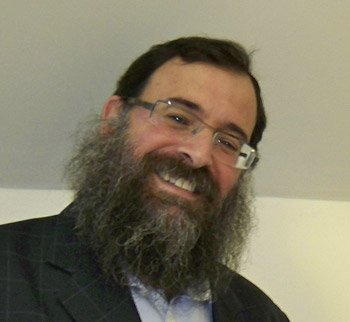MONTREAL — Drinking four cups of wine at the Passover seder is not only a tradition, but almost a sacred duty among observant Jews.
But one Chabad-sponsored holiday meal will have no alcohol on the table: a Sober Seder offered by Chabad Lifeline, a support program for those with addictions of all kinds.
At the first seder on March 25, Chabad Lifeline will open the doors of its centre at 4615 Côte Ste. Catherine Rd. to anyone with alcohol abuse problems or who are in recovery evening.
At this otherwise regular seder, the beverage poured into their cups will be grape juice.
Rabbi Benjamin Bresinger, Chabad Lifeline’s director, has been running these alcohol-free seders for the past five years since he returned to his native Montreal from the United States.
You don’t have to be a client of Chabad Lifeline to attend. In fact, you don’t even have to be Jewish, because the centre’s services are offered on a non-sectarian basis. Family members, including children, are urged to join in as well.
Bresinger and his wife Karen – the centre’s clinical director – and their five kids, ages 2 to 14, will be there. The younger Bresingers have been attending similar Sober Seders most of their lives, back to the days when their parents started working with addicted people in New Jersey.
Since 2011, Chabad Lifeline (formerly Project Pride) has been located in a gracious two-storey home dating back to the 1920s, owned by the nearby Jewish General Hospital.
“There are segments of the Jewish community that are not going to participate in a [regular] seder because alcohol is served,” said Rabbi Bresinger.
Being around alcohol in a social setting can be particularly difficult for those in recovery.
“Some will go and pretend to drink, others will feel like they don’t belong if they don’t,” he said.
That has much to do with the denial and shame that persists in the Jewish community about alcoholism, he thinks. Even within families, there is often a lack of recognition of the seriousness of the problem or sensitivity to the recovery process.
“Those in recovery also benefit from the camaraderie of being with others going through the same thing – especially during the holidays,” he said.
Rabbi Bresinger finds the themes of Passover especially relevant to those battling addiction. He describes addiction as a type of slavery, and those who have come through it can remember the bitterness of the past and savour their freedom today.
The spouses of these addicts, he adds, also can relate to the slavery to redemption analogy because they, too, suffer.
Of course, he also believes in the power of spirituality to heal.
During the seder, participants are invited to share their personal stories candidly. Chabad Lifeline’s guiding philosophy is that addiction – be it alcohol, drugs, gambling, even sex – is a treatable illness, therefore, those suffering from it should not be judged.
Rabbi Bresinger believes it’s beneficial for their relatives, even children, to witness these confessions because they can better understand what the afflicted are going through.
“I know it enriches my children,” he said, “It’s taught them that there can be no judgment of another’s suffering.”
Chabad Lifeline receives 16,000 visits per year, Rabbi Bresinger said, and 60 per cent of those using its services are Jewish. It currently runs 17 support groups a week.
For more information, visit www.chabadlifeline.com.
